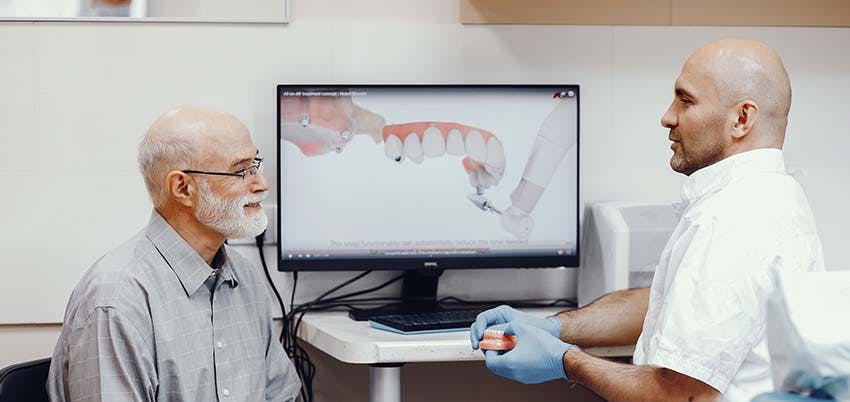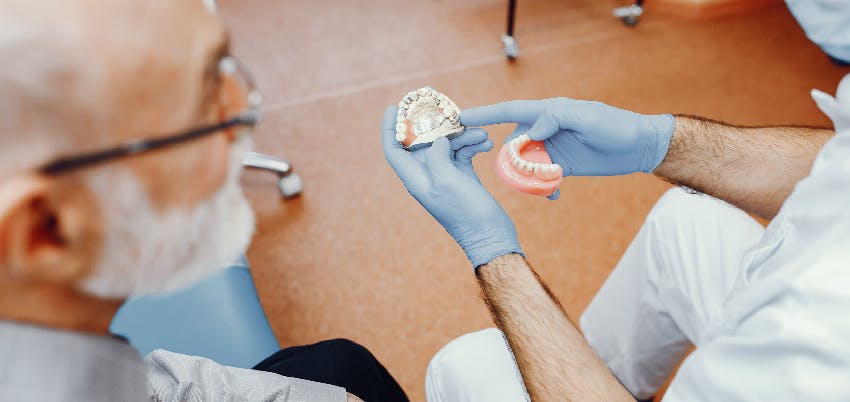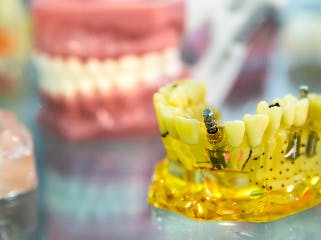
Dental Implants: We answer all your questions
by Wildsmile
Before making the decision to proceed with any dental treatment it is natural that many doubts arise; at Wildsmile we have made a compilation of the most frequent questions asked by our patients about dental implants.
1. For whom and when is dental implantology recommended?
Dental implants are recommended for all those people who have lost one or more permanent teeth, since when there is an empty space between teeth we have the risk of suffering the displacement of other teeth or the decalcification of the maxillary bones.
2. What is the limit of age for placing a dental implant?
As long as the patient is in good oral and general health it can be said that there is no age limit for this procedure. In fact, it is very common for patients over 70 years of age to undergo this procedure.
3. How long do dental implants last?
With good hygiene, caring, and regular visits to the dentist, implants can last as long as a natural tooth (a lifetime), making them a long-term solution. There are several factors that may affect their durability, the average life period is around 25 years, but if they have been correctly placed and we maintain good hygiene, they can last a lifetime.
4. How is a dental implant treatment executed?
Prior to the placement of the implant, the analysis of the patient's dental tomography is done, this serves to determine the position, diameter and length of the implant. Subsequently, in the Clinic, a cut is made in the gum and then the jawbone is perforated. Once this process is finished, the dental implant will be placed.
5. How should dental implants be cleaned?
The process for implant hygiene is very similar to that for natural teeth. Brushing should be done three times a day, flossing and rinsing your mouth at least twice a day. It is recommended to be very strict with the oral hygiene when you have an implant, this prevents periimplantitis, which can lead to the loss of the implant.
6. Do dental implants cause any medical incapacitation?
Since it is a minimally invasive treatment that generates little pain, medical incapacity is a maximum of one week. Your dentist will prescribe medication to help control the swelling and pain.
7. What are the recommendations before the dental implant surgery?
Before the surgery it is advisable to eat very well, as after the treatment you will not be able to eat for a few hours. After the surgery the most recommendable thing to do is to eat mild foods and avoid hot and/or acidic liquids or foods.
8. Is there a minimum age for placing dental implants?
It will be possible to place them when the process of growth and development of the face is complete. This varies depending on the gender, approximately 16 years for women and 18 years for men.
9. Will I be able to eat normally with dental implants?
As they are attached to the jawbone with titanium screws they are very resistant and safe, giving an incomparable comfort when eating and chewing, so you can eat without fear that they will break or slip off! Even some people, after the treatment assure that they eat even better than when they ate with their natural teeth
10. How long does the dental implant cirgury take?
This will depend on how many dental implants you need. There are usually no complications in the procedure, so the average time to place an implant is 30 minutes.
11. Do dental implants work inmediately?
It depends on each patient. Normally, once the effects of the inflammation have passed, the implant will be ready for the placement of the dental crown, however, there may be cases in which it is necessary to wait up to 4 months.
12. Is it uncomfortable to speak when having a dental implant?
Not at all, as it is practically a natural tooth it does not complicate the speaking or pronunciation.
We hope that in these articles we have answered all your questions about dental implants. If you have any questions on this subject, write us and we will answer you as soon as possible.
You may be interested on reading: DENTAL IMPLANTS: BENEFITS
Want to learn more about this?
Contact us
Your contact request is registered. We will contact you as soon as possible.
Lorem ipsum dolor sit amet, consectetur adipisicing elit. Adipisci alias aliquid amet commodi dolor, dolore doloremque dolores fugit quod repellat.
 ESP
ESP
 ENG
ENG





